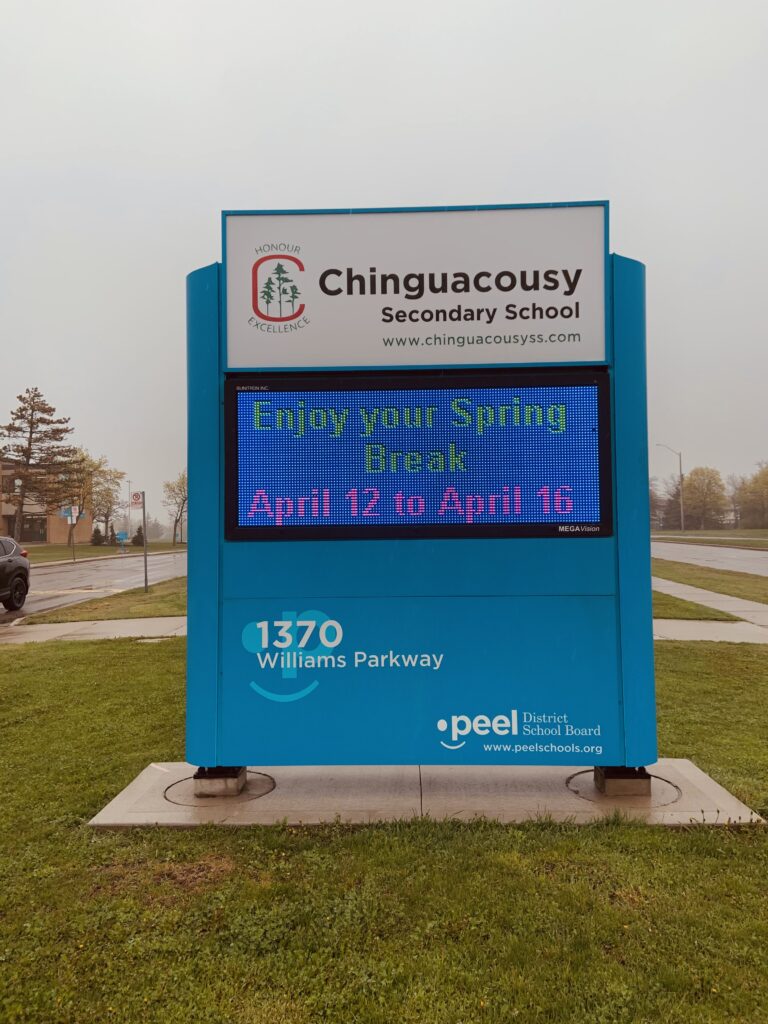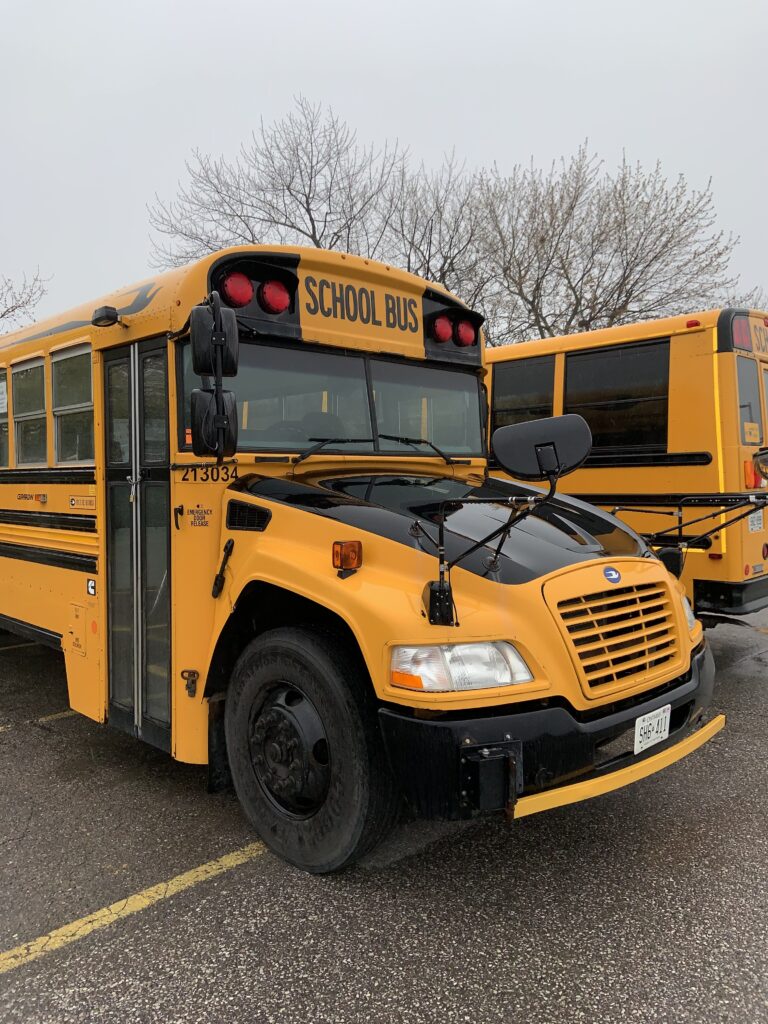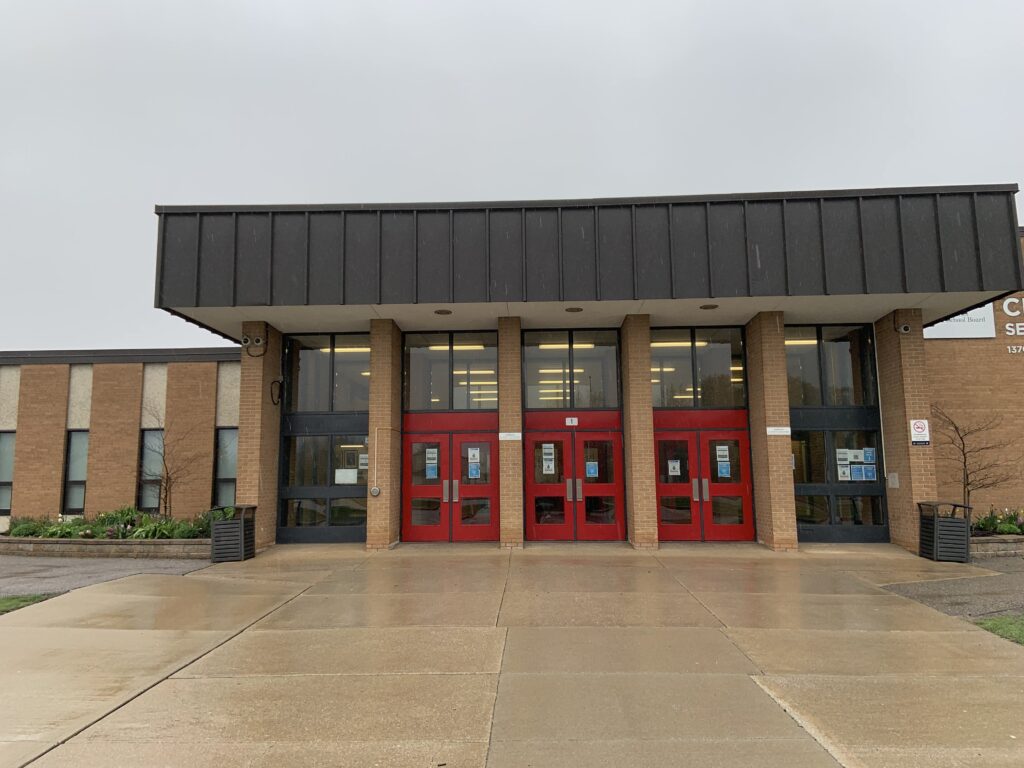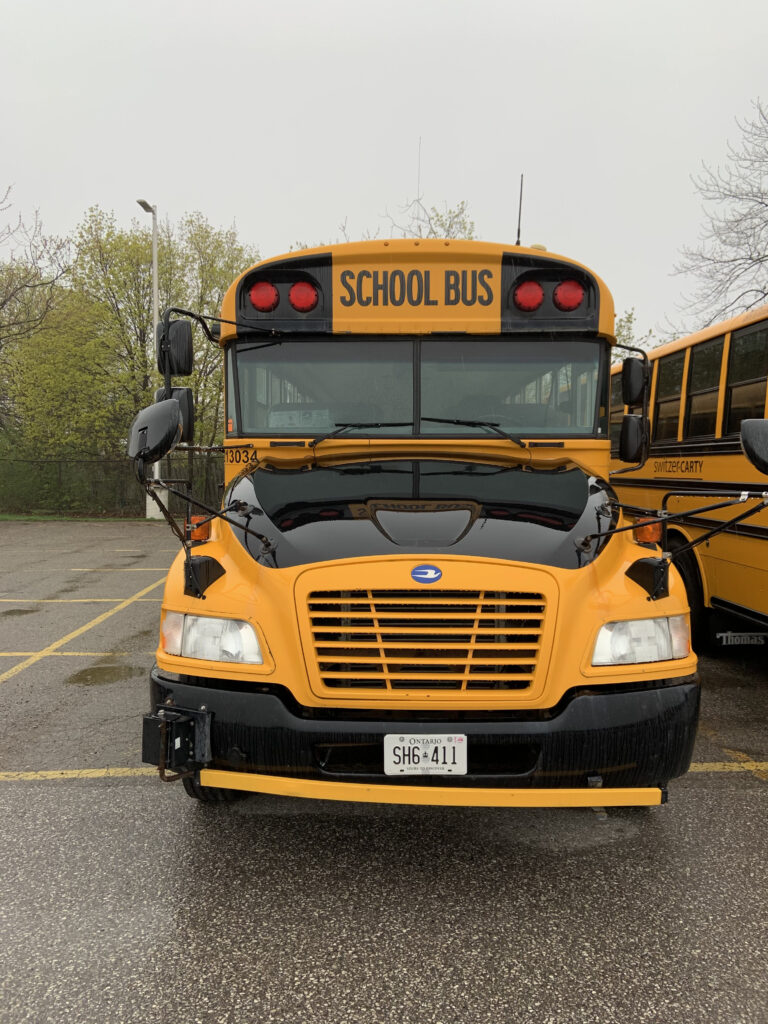By Deepak Sharma
Music teacher Melissa Runhart begins with vocal warmups with about 20 of her cast. She plays her grand piano and sings the songs with students repeating the lyrics, melodies, and rhythms. Students hit the high notes, and relax their tense voices by repeating warm-up songs. Runhart sings, “Rose, Rose, Rose, Rose, Will I ever see thee wed? I will marry at thy will sire, At thy will.”
This is not a normal in-person rehearsal. Runhart is in her bedroom, not on the school stage. In her home office workspace turned music recording studio, she has sound filtering audio intake equipment. Her computer on the desk is connected to speakers and logged into Google Meets. She has a black leather stool that she rarely uses, as she always likes to stand straight up while singing.
Everyone cannot turn all their microphones on at once due to glitches, echoes and unsynchronized sound. So students remain muted, practising off-camera in their silent bedrooms. She asks her lead performers who have vocal roles to unmute, and one by one she listens to them singing.
In person before the pandemic, warmup was different. It was more energetic, collaborative and physically active in the auditorium theatre. Runhart would lead stretches, exercises and endurance workouts on stage. Performers’ strength and cardio would be tested. They would do jumping jacks, lunges and planks.
Runhart is choreographing a staged production which will be uploaded online. MMXX, 2020 in Roman numerals, is a one-act collective musical written by the Musical Theatre Company of Chinguacousy Secondary School in Brampton. They took several musical theatre songs that already exist, then wrote scenes to tie them together. It is a student-written original storyline based on monologues and experiences in the pandemic.
The kids are filming everything at home on their own devices and then they upload them to Runhart who will stick the video clips all together during editing and production of the final recorded musical.
“It’s a lot more time consuming at the end than it is for a live audience in an auditorium.”
When it’s time for scene script readings, the performers unmute themselves to narrate their dialogue in character. Runhart says her creative and talented cast members are loud, expressive, vibrant and artistic. The students transform into their assigned characters and they feel like they are on stage in an auditorium with the audience cheering them on in a sold out show. When it’s time for dancing, Runhart requests they adjust the camera angle so she can observe their feet. She puts on an upbeat soundtrack and performers try to follow her fast paced choreography with step by step turns.
Rehearsals start at 2:45 p.m. and finish at 4:15 p.m. on Wednesday afternoons. Students start leaving early or drifting away due to other academic course workloads. One member had a chemistry test, and the other a robotics programming club. Runhart is frustrated but understands that online school is stressful.
There are many challenges in getting kids to show up: “Teachers who run classes late, kids who are enrolled in night school or online school, all three of those options include writing tests at conflicting times, kids who have to look after younger siblings, homes with poor wifi connections, kids who just forget to login and attend rehearsal because they’ve already been online all day.”
She continues to manage extracurricular productions because she wants students to have the opportunity to stay busy and occupied with a hobby, talent or special skill. Runhart says that creative productions require collaboration and people feel connected even when they are scattered. Isolation, loneliness and stress of this pandemic on young people has taken a toll on their mental health, but entertainment brings them normalcy and coping mechanisms, says Runhart.
“When the chips were down, did you want to sit in your house in the dead silence? No, you wanted music.”
Grade 10 student Claudia Martinez plays one of the lead characters. “Art, all parts of it, is a big part of me and I honestly would be lost without it. It brings colour and imagination into the word by using different styles, whether it’s paints and pencils, tunes, or dances.”
But she misses the fun of rehearsals and not being able to hug fellow performers.
“I remember rehearsals in the auditorium, the laughs, the stunts, the dances, and the unfortunate cancelling of our production when COVID-19 first showed up. Life before COVID was something not many people thought would change, so when it was first identified it hit lots of people, including myself, hard. I miss people, being able to socialize in person and physically go to school.”
Brainstorming and writing the musical took about three months. In breakout rooms and on a shared Google Doc, the writers started planning their individual scenes to reflect back on the disastrous year 2020.
Group one was working on the idea that would be a flashback. A student in the future has been given a project on the “Great Pandemic of 2020” and goes home to ask her parents about it since they lived through the harsh conditions and survived the global health crisis .
Group two took the idea that being in quarantine felt like a prison cell from which there was no escape. This scene eventually turned into a very emotional and somber scene exploring one of the main character’s mental health issues. It highlights isolation, depression and social outcasts.
Group three had the hilarious idea of an anti-masker trying to get into a grocery store in a variety of different disguises (none of them including a mask). It was to be the comedic relief in an otherwise dark, gloomy, or depressing play. She keeps coming back in different costumes and disguises. She comes back in a moustache and glasses. She comes back all in black and rolling down the ground like a ninja. She comes back in somebody’s shopping cart in a onesie. And she keeps being told she needs a mask to enter.
Martinez plays an arrogant person, a so-called Karen- the slang term for an obnoxious, angry, entitled woman who throws an immature rant at stores, restaurants and public places where she gets triggered and becomes threatening. “Although I don’t know much about her, getting to play as Karen has been very fun as it challenges me to play a character unlike myself, as well as trying new styles that can give my character spark.”
Destigmatizing mental illness is a top priority for this musical to cover and Runhart is committed to supporting and doing wellness check-ins with students online.
“Before the show’s grand finale, we address the audience out of character, and provide them with the phone number for Kids Helpline for counselling and therapy, before singing a finale You Will Be Found from Dear Evan Hansen.”
The plan during this piece is to invite and feature students, teachers, and alumni in addition to the cast and crew to make it a huge big number of support, love and belonging. They will sing along the lyrics recorded for a mashup music video.
A pandemic is not the only unexpected event Runhart has overcome.
When she was teaching at her previous school in Mississauga, there was a storm on closing night of a musical causing a power outage blackout. The room was in darkness and the microphones and speakers were silent. She delayed the start of the show hoping that the power would come back on.
The custodian drove to his house and picked up a couple of electrical generators and they got a bit of light on stage for visibility. In semi-darkness with a couple of acoustic guitars, they decided the show must go on. The stunt captain was on stage calling off stunts that he deemed to be too unsafe such as flips, kicks and other dancing maneuvers. Almost an hour after the show was scheduled to begin, they started. The cast took their positions for the opening number and as soon as they started to sing, the power came back on. It was a miracle, the shining stage light was bright and illuminating. They quickly reset and – boom– a perfect show.
These past technical difficulties have taught Runhart to be more resilient and to improvise.
The difference now is that Runhart does not have the technical resources found in a custom-built auditorium. She now relies on innovative approaches to teach music, singing and dancing through her computer. There is no closing night, no tickets being sold and no crowd. Runhart is upset that she can’t see live reactions, but is grateful for this opportunity to continue her musical theatre shows despite adversities.
James Suknundun, president of the music council, provides Runhart with extra help and assistance in directing, content creation and feedback. He compared the editing, revision and scene breakdown process as a jigsaw puzzle as oddly shaped interlocking pieces have to connect together in a sequence that makes sense to the audience.
In addition to grading homework, assignments and class activities. Runhart now has the tedious job of reviewing videos submitted by performers.
“In real life, we can run rehearsals right up until the day of the first performance. But now, I need to collect all the videos weeks in advance to give myself enough time to attach them all together before the first performance date. I see some sleepless all-nighters in my future.”




